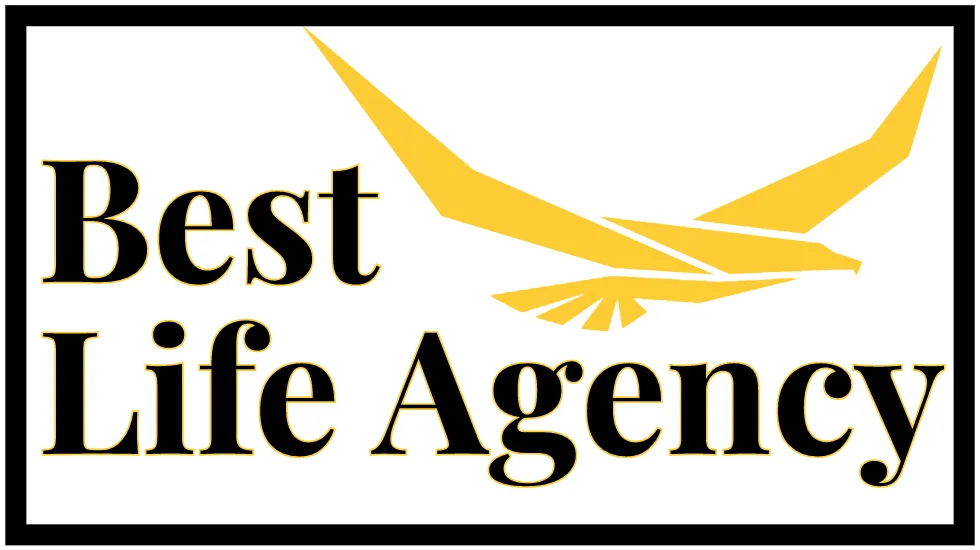
C29 - Beyond the Fine Print: How Life Insurance Agencies Thrive on Ethics and Transparency
Beyond the Fine Print: How Life Insurance Agencies Thrive on Ethics and Transparency
Introduction:
Have you ever found yourself squinting at the fine print of an insurance policy, wondering what secrets lie within those dense paragraphs? It's a common scenario that highlights a bigger issue in the industry: the critical need for transparency and ethics. Let’s face it, navigating through the complexities of life insurance can sometimes feel like trying to read hieroglyphics without a Rosetta Stone. But what if I told you there's a movement within the industry towards clear skies and straight talk? Today, we dive into the heart of life insurance operations to uncover the strategic imperative of embracing ethical practices and transparency, not just as a legal formality but as a cornerstone of trust and long-term success.
Highlights:
Establishing a Code of Ethics:

Like the moral compass guiding ships through foggy seas, a comprehensive code of ethics ensures that every member of the agency stays on the right course, making decisions that reflect integrity and respect.
Transparency in Client Relations:
Imagine your insurance policy as a clear, sparkling stream, where every detail is visible from the surface to the bedrock. This level of clarity builds an unshakeable foundation of trust and loyalty with clients.
Employee Training and Awareness:
Regular training sessions act as the agency's internal GPS, guiding employees through the landscape of ethical dilemmas and regulatory landscapes, ensuring they remain ambassadors of integrity.
Monitoring and Compliance:
Through mechanisms like internal audits and anonymous reporting systems, agencies keep their operations clean and accountable, much like cities keep their streets safe with vigilant policing.
Stakeholder Engagement:
Dialogue with clients, partners, and the community isn’t just about broadcasting commitments to ethics and transparency; it's about weaving these principles into the very fabric of the agency's identity.
In-Depth Analysis:
Delving deeper, we find that ethical decision-making frameworks and client feedback mechanisms aren't just administrative tools; they're beacons that light the path to sustained success and innovation. By integrating ethics into every aspect of operations, agencies like IntegrityFirst Insurance don't just comply with standards; they set new benchmarks for excellence and trust in the industry.
Real-World Examples:
IntegrityFirst Insurance stands as a paragon of how ethics and transparency can elevate an agency beyond the competition. Their commitment isn’t just written in the employee handbook; it’s etched into every policy, every client interaction, and every strategic decision. This unwavering dedication has not only cemented their reputation as a leader but has also fostered deep, enduring trust with clients and employees alike.
Practical Applications:
For agencies looking to mirror the success of IntegrityFirst, the path is clear:
Embed ethical principles and transparency into your agency's DNA.
Cultivate an environment where feedback is treasured and acted upon.
Make ethical training and compliance as fundamental as your business model.
These steps aren't just good practice; they're essential strategies for navigating the complex, often turbulent waters of the life insurance industry.
Conclusion:
In an era where trust is as precious as gold, ethical practices and transparency aren't just nice-to-have; they're non-negotiable pillars of a successful life insurance agency. By embracing these principles, agencies can navigate through the mist of skepticism and emerge as beacons of trust and integrity. IntegrityFirst Insurance is a shining example, but the journey doesn’t end here. It’s an ongoing voyage towards greater transparency, deeper trust, and a brighter future for the industry.
Call to Action:
Now, I turn the floor over to you. How do you perceive the importance of ethics and transparency in your life insurance dealings? Have you encountered a company that exemplifies these values? Share your experiences and thoughts below, and let’s spark a conversation that illuminates the path to trust and integrity in insurance.
FAQs
Q: Why is establishing a code of ethics important for life insurance agencies?
A: A code of ethics serves as a foundational guide for decision-making and behavior within an agency. It ensures that all actions and decisions align with the agency's core values of integrity and respect, fostering a culture of trust and ethical behavior.
Q: How does transparency in client relations benefit both the agency and the clients?
A: Transparency in client relations fosters trust and loyalty, which are crucial for building long-term relationships. Clients who understand their policies and the rationale behind decisions are more likely to feel satisfied and remain with the agency, benefiting the agency through sustained business and referrals.
Q: What role does employee training play in promoting ethical practices?
A: Employee training is vital for ensuring that all staff understand the agency's ethical standards, regulatory requirements, and the importance of transparency. Regular training helps employees navigate ethical dilemmas and reinforces the agency's commitment to integrity, making them effective ambassadors of trust.
Q: Can you explain the importance of monitoring and compliance in upholding ethical standards?
A: Monitoring and compliance mechanisms, such as internal audits and feedback channels, help ensure that the agency consistently adheres to ethical standards and transparency. These practices identify and address potential issues early, safeguarding the agency’s reputation and operational integrity.
Q: What benefits do life insurance agencies gain from engaging with stakeholders?
A: Engaging with clients, partners, and the community helps agencies understand their expectations and perceptions regarding ethical practices and transparency. This engagement strengthens relationships, enhances trust, and fosters a positive image in the community, contributing to the agency's success.
Case Study: IntegrityFirst Insurance
Background:
IntegrityFirst Insurance has positioned itself as a leader in the life insurance industry by building its brand on ethical practices and operational transparency. The agency is known for its commitment to integrity at all levels of operation, from top executives to frontline staff.
Challenges:
In a market crowded with competitors, IntegrityFirst needed to differentiate itself and build a strong reputation based on trust and ethical operations.
Solutions:
Developing a Comprehensive Code of Ethics:
The agency crafted a code of ethics that serves as a living document guiding behavior and decisions.
Promoting Transparency:
IntegrityFirst ensured clear communication with clients about policies, fees, and the claims process.
Regular Employee Training:
The agency implemented ongoing training programs to reinforce the importance of ethics and transparency.
Establishing Monitoring and Compliance Mechanisms:
IntegrityFirst set up regular audits and an anonymous reporting system to uphold their ethical standards.
Results:
IntegrityFirst's commitment to ethics and transparency has not only distinguished it in a competitive market but also cultivated deep trust with clients, attracting and retaining top talent, and mitigating risks. The agency's proactive approach has solidified its reputation as a trusted leader in the life insurance industry.
Emerging Trends
Digital Transparency:
With the rise of digital platforms, life insurance agencies are increasingly leveraging technology to offer more transparency. This includes online dashboards where clients can easily access and understand their policy details and claims processes.
Ethical AI Use:
As artificial intelligence becomes more integral to operations, agencies are prioritizing the ethical use of AI in decision-making processes, ensuring fairness and transparency.
Sustainability and Social Responsibility:
There's a growing trend of integrating ethical considerations into sustainability efforts, showing agencies' commitment to societal impacts beyond financial success.
Enhanced Regulatory Compliance:
With regulations becoming more stringent, agencies are focusing on exceeding basic compliance requirements, showcasing their dedication to ethical practices and transparency.
Resources
Ethical Practices in Life Insurance: A Comprehensive Guide:
This guide provides an in-depth exploration of the principles of ethics and transparency within the life insurance industry. Readers can access this resource at www.ethicalinsuranceguide.com.Transparency Tools for Agencies:
A toolkit designed to help life insurance agencies implement transparency in their operations, available at www.transparencytoolsforinsurance.com.Online Ethics Training for Insurance Professionals:
Offering a range of courses aimed at enhancing ethical decision-making and practices among insurance employees. Explore the courses at www.insuranceethicstraining.com.IntegrityFirst Insurance Case Study:
A detailed case study on how IntegrityFirst Insurance has leveraged ethical practices and transparency to achieve success in the life insurance market. Access the case study at www.integrityfirstcasestudy.com.Zing Business Systems (website: zingacp.com/home) revolutionizes how businesses talk to customers by turning missed calls into texts, which helps close the communication gap. This technology saves potential sales and improves customer interaction across multiple channels. It streamlines customer management and tracks important data for marketing and sales. Enhance your customer service and boost your online marketing with Zing and don't lose customers from missed calls.
Start your own blog checklist:
Here is a quick checklist to get you started with you website blow. Remember imperfect action beats inaction, get started and keep publishing.
Create your blog page then add the blog element
Add the blog element to your page and select if you want compact or list view
Start planning your blog topics by Identifying what resonates with your audience. If you are stuck you can use sites like - https://answerthepublic.com/
Create an outline serves your company goals.
Write conversationally, like if you were telling a story to a friend
Pick a catchy title.
Use several media types (gif, short video, or image) to deliver your messages.
Use data to back up claims or ideas - make sure to cite all sources❗
Have a call to action and or give your audience something to walk away with.
Take 30 minutes to edit your post.
Frequently Asked Questions
Common Questions Answered for your convenience.
What types of life insurance do you specialize in?
At Best Life Insurance, we offer a wide range of life insurance plans to suit our clients' varying needs. These include Term Life Insurance, which is an affordable option providing a payout to your beneficiaries if you die within the policy term, ensuring they're financially secure. Whole Life Insurance gives you coverage for life and builds cash value that you can use if necessary. Indexed Universal Life Insurance (IUL) is a flexible policy where the cash value can increase based on a stock market index's performance, offering growth potential.
How do I choose the right life insurance policy for me?
Choosing the right life insurance policy involves assessing your financial situation, long-term goals, and the needs of your dependents. Our experienced agents work closely with you to understand your unique circumstances, helping you compare the benefits of different policies and guiding you to make an informed decision that aligns with your financial planning goals.
What is the process for applying for life insurance?
Applying for life insurance with us is straightforward. Initially, you'll have a consultation with one of our licensed agents to discuss your needs and options. Following this, you'll complete an application that includes health, lifestyle, and financial questions. Depending on the policy, a medical exam may be required. Once your application is reviewed and approved, we'll finalize the policy details and issue your coverage.
Can I change my life insurance policy once it's in place?
Yes, adjustments can often be made to your life insurance policy after it's in place. This might include changing your coverage amount, adjusting beneficiaries, or, in some cases, converting from term to permanent coverage. Our agents are here to discuss your needs and help facilitate any changes to ensure your policy continues to meet your evolving needs.
What factors affect my life insurance premiums?
Life insurance premiums are influenced by several factors, including the type of policy you choose, the amount of coverage, your age, health status, lifestyle choices (such as smoking), and your family medical history. Our agents can provide personalized quotes and explain how each factor may impact your premiums.
How does a life insurance payout work, and who can be a beneficiary?
A life insurance payout, or death benefit, is the amount paid to your designated beneficiaries upon your death. You can nominate anyone as a beneficiary, including family members, friends, or organizations. The payout can be used by beneficiaries for any purpose, such as covering living expenses, paying off debts, or funding education. Our policies ensure a streamlined claims process, aiming for a quick and efficient payout to support your beneficiaries during a difficult time.
